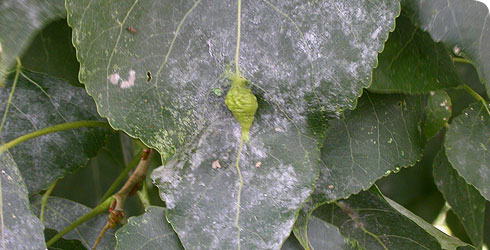Distribution
Widely distributed throughout Southern, Central and East Europe, North Africa and eastwards to Central Asia the Black or Water Poplar is almost certainly native to lowland England but as with many of our tree species its present distribution is largely artificial, the result of widespread planting. Nationally sources cite figures of c.7,500 trees, of which c. 600 are female (Jones, 2004)- these numbers are regarded by many experts to be inaccurate but the relative proportion of the sexes is unlikely to change greatly. The great disparity in the distribution and abundance of the sexes would be difficult to account for as a natural phenomenon. The distribution of diversity is being elucidated by DNA sequencing techniques; these have identified the wide distribution of particular vegetatively propagated and hence planted clones.
Most trees are to be found south of a line from the Mersey to the Humber estuaries, with scattered occurrences northwards. Genetically distinct populations occur in the central plain of Ireland. The greatest concentrations in Great Britain occur in the Aylesbury Vale, but significant populations also occur in Wiltshire, along the River Severn and in Somerset, Suffolk and Shropshire. We currently know of about 300 trees in Greater London, a significant proportion of which are female.
Past confusion with hybrids and their backcrosses and the mapping also of cultivars such as the Lombardy Poplar and recent conservation/amenity plantings mean that this map should be viewed with some caution. Careful search is still however revealing previously overlooked veteran trees throughout the British range.
Ecology
A species naturally occurring in open wet woodland and on forested floodplains, clearance and drainage since the Neolithic period have restricted the species to riverbanks, hedgerows and field margins. It does not tolerate dense shade well. In cultivation it is remarkably tolerant of a range of soil conditions and of atmospheric pollutants and has been widely planted in much drier localities than it would naturally occupy.
